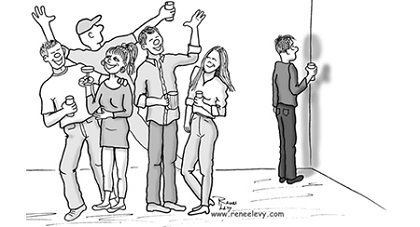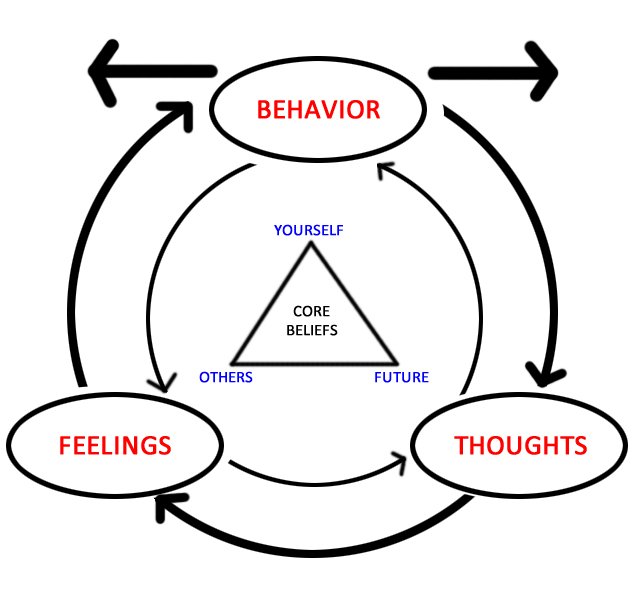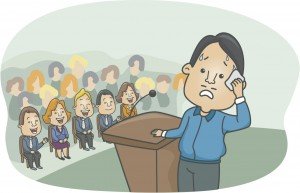Is social aniexty a disorder? Numerous individuals continue asking this specific question and I similarly need an answer from my audience/readers and furthermore the research I made so far. Many people shy away from having anything to do with societal get-together, staying away from a circumstance where they wouldn't have any desire to participate in a said discussion/conversation.
Social anxiety according to social anxiety institute defines it as fear of cooperation with other individuals that brings one self-consciousness, feelings of being judged negatively and evaluated accordingly, leads to avoidance.
Perceptions;
Individuals with social anxiety are ordinarily observed by others as being shy, quiet, pulled back, hindered, antisocial, reserved and so forth.
As bewildering as it seems, individuals with social anxiety want to make friends be included in groups and occupied with social interactions. Having social aniexty keeps individuals from having the capacity to do things they would like to do. Although individuals with social aniexty want to be friendly, open and sociable yet it is fear that keeps them down.
People with social anxiety stress exorbitantly over them and can do as such for a considerable length of time anticipated of the social gathering/situation. These sort of individuals with social anxiety disorder fear that they will say or do things involuntarily or otherwise, something they may think could be mortifying or humiliating that could influence them to seem stupid or look incompetent.
The cognitive theory of social aniexty which its fundamental theories about social anxiety attests that social aniexty is identified with overestimating the negative parts of social communications and furthermore disparaging the positive viewpoint. These individuals faced with this aniexty tends to overestimate the danger of social connections, the probability of negative outcomes and the consequences of negative results.

source.
These theories demonstrates that these individuals tend to think more about the following;
They overestimate their level of threat in social structure, thoughts like ; these people will judge me for talking this way.
Or then again think little of their capacity not dealing with social structures ; they are going to think I sound doltish.
What's more, having a negative result like they will believe i'm stupid.
All these leads to avoidance of social interactions.
Neurobiological Mechanisms concerning this disorder
Numerous studies investigating neural bases of social aniexty disorder. Despite the fact that the correct neural components have not been found yet, there is prove relating social anxiety disorder to irregularity in some neurochemical and hyperactivity in some brain areas.
Study demonstrates that this disorder regularly starts in youth or early puberty and once in a while develops after age 25.
What could be the real causes of this specific disorder?
While research to better comprehend the causes of social anxiety disorder is ongoing , a few examinations embroil a little structure in the cerebrum called the amygdala in the symptoms of social fear. The amygdala is accepted to be a focal site in the cerebrum that controls fear reactions. Childhood maltreatment and adversity are risk components for social anxiety disorder.
Scientific approach to the causes of social aniexty disorder
Research has dependably demonstrated that social anxiety disorder is heritable in this way making it genetic. Research supported by the National institute of mental health(NIMH) has likewise recognized the side of an end in mice that influences learned fearfulness. However, scientists are investigating heightened sensitivity to dissatisfaction might be physiologically or hormonally based. Different analysts are researching the environmental impact on the improvement of social fear. source
Environment: Social anxiety disorder may be an learned conduct ; a few people ,develop the condition after a humiliating social circumstance. It could be related with parents who either display anxious behaviour in social circumstances or are more controlling and overprotective of their kids.
Symptoms of social aniexty disorder;
A diagnosis of social anxiety disorder is made only if this aviodance, fear or restless expectation of a social circumstance meddles with one's daily routine, occupational functions and social life. The Diagnostic and Statistical manual of mental disorders(DSM-V) gives the accompanying criteria to diagnosing social anxiety disorder:
The individual fears behaving in a way that causes humiliation or being contrarily evaluated.
Exposure to social circumstances quite often causes extreme anxiety.
The feared circumstances is avoided with anxiety and distress.
The frag is relentless and normally goes on for a half year or more.
The individual fears at least one social circumstances in which he or she is exposed to public scrutiny by others.
These are simply symptoms when analyzed by a therapist to a social anxiety disorder person. However below are Physical symptoms of social anxiety disorder;
Nausea
Displaying rigid body posture
Poor eye to eye connection/poor eye contact
Sweating,
Trembling
Rapid heart rate.
Treatments
Treatment relies upon how much social anxiety disorder influences your capacity to work in ones day to day life. There are two approaches to treat social anxiety disorder which are Psychotherapy or medications.
Psychotherapy improves symptoms in most people/cases of social anxiety disorder.

source.
Cognitive behavioral treatment is the most functional type of psychotherapy for anxiety and can be similarly effective when conducted individually or groups.
Medication in this angle are humungus and I would advise you seek help of a therapist. But there are other lifestyle and home remedies that can help in combating social anxiety disorder. Which includes;
Eat healthy and balanced diet
Get enough rest
Learn stress reduction skills
Avoid alcohol and caffeine.
Participate in other social get-togethers with people you feel comfortable with.

Wonderful read. Social anxiety is actually more common than we think. We classify these people as being introverts where in reality they're not. They are just scared.
I think another way of overcoming it is to subject one self to event or activities that requires facing/working with a lot of people
Downvoting a post can decrease pending rewards and make it less visible. Common reasons:
Submit
It's very common and more reason I advise parents to always subject their kids to debates. It helps a lot.
Downvoting a post can decrease pending rewards and make it less visible. Common reasons:
Submit
I think it's a mental disorder because the brain has been fed with so much fear of being judged or ridiculed by others that it has now become a way of life for such person.
Downvoting a post can decrease pending rewards and make it less visible. Common reasons:
Submit
Exactly... thanks for stopping by...
Downvoting a post can decrease pending rewards and make it less visible. Common reasons:
Submit
Social anxiety may not be a constant behaviour. A certain situation may cause anxiety to an individual on a certain day, but won’t on the next. I would simply say "It's a fluid thing.”
Nice post!
Downvoting a post can decrease pending rewards and make it less visible. Common reasons:
Submit
Well it could be as a result of a traumatic event. Not really a fluid thing tho. Constant engagement in social activity can only help... even for once can't make one become anxious of people around him or her.
Downvoting a post can decrease pending rewards and make it less visible. Common reasons:
Submit
I will start by saying humorously
"Omo na mental case, start to dey crase na who dey run for this place? face, Kolomental"
Does that line ring a bell? Disorder is menace that we all must tackle especially the mental cases. It is really a social disorder which has it own adverse effect on people and the society at large..
Some have made themselves hunky and abuse substance that it runs through their system causing them to embarrass themselves in public places and even among family members...
Well, I could write and full this place. I know you have made salient point here.. And I am going to apply them to become a better person. (I no dey smoke ooo) laughs..
Thanks for this piece..
I am me @brightfame
Downvoting a post can decrease pending rewards and make it less visible. Common reasons:
Submit
Lmao
Haha I remember it by faze.
You have a good point there but most people who have these anxiety aren't put to embarrass any family.
Downvoting a post can decrease pending rewards and make it less visible. Common reasons:
Submit
it is also worthy of note that what makes some people snobs or referred to as snobs is social anxiety.
Downvoting a post can decrease pending rewards and make it less visible. Common reasons:
Submit
Could be... thanks for reading,
Downvoting a post can decrease pending rewards and make it less visible. Common reasons:
Submit
I can really say if it is a mental disorder because i was once plagued by social anxiety but to me it more of my person then because i was this shy, introvert person i just like staying away from public outing. But no more, i delivered sermon in churches and engage in other outing stuff, i guess i outgrow it
Downvoting a post can decrease pending rewards and make it less visible. Common reasons:
Submit
The above statement shows you have it... Participating in more societal activities could help. :)
Downvoting a post can decrease pending rewards and make it less visible. Common reasons:
Submit
Thanks
Downvoting a post can decrease pending rewards and make it less visible. Common reasons:
Submit
Interesting research. I think social anxiety disorder is other words known as shyness or timidity. Many of us experience it at some point in life.
Downvoting a post can decrease pending rewards and make it less visible. Common reasons:
Submit
True... thanks for reading dear...
Downvoting a post can decrease pending rewards and make it less visible. Common reasons:
Submit
This part sha. Hmm.
This is really great and straight to the piont. I have had instances where I emphasize on the negative part of something just not to get associated nor do it.
I still try not to get some societal associations though, unfortunately. Although, it saves me some unnecessary association.
Thank you for this.@sweetestglo-eu
Downvoting a post can decrease pending rewards and make it less visible. Common reasons:
Submit
Welcome to my club... I have same anxiety and it makes me control how I associate with people. Except I'm behind the phone, I could be anything but physically? You will be amazed at my silence. Thanks for reading dear friend. :)
Downvoting a post can decrease pending rewards and make it less visible. Common reasons:
Submit